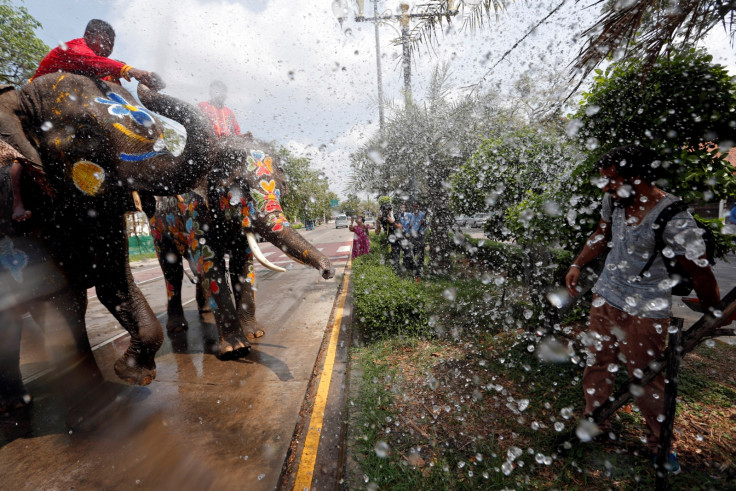Songkran 2017: Thailand celebrates water-splashing festival amid warnings from military government
The Southeast Asian country is in a year of mourning for deceased King Bhumibol Adulyadej.
Celebrations for the Buddhist New Year festival, Songkran - also known as the annual water festival - began on Thursday (13 April) in Thailand amid warnings from the military government as the country continues to mourn its widely revered deceased King Bhumibol Adulyadej.
The Southeast Asian country is in a year of mourning for Adulyadej, who died at the age of 88 on October 2016. Many entertainment events have been scaled back as a sign of respect.
The Prime Minister Prayuth Chan-ocha has also asked people to limit intake of alcohol and not wear loud clothing.
"I want everyone to help reduce accidents and have a little common sense. The selling of alcohol near festivals has caused chaos and the meaning of Songkran has been twisted. We have to do our part in preserving our culture and traditions," Prime Minister Prayuth Chan-ocha said.
According to reports, people who violate the instructions are liable for a fine of THB 5,000 (£115). Deputy commissioner of police Sompong Chingduang has even warned ladies not to "wear revealing clothes" or "be tempting because it will lead to sex crimes", Coconut Bangkok reported.
This is not the first time when Prayuth's military administration has put restrictions on the people's choice of what it sees as an influence of Western culture. Following the 2014 coup, the military government has tried a number of times to restore its "traditional Thai values".
However, it seems the restrictions and warnings have not affected people from enjoying Songkran, which falls every year on 13 April and ends on 15 April.
During the celebration, Thais and foreign tourists take part in lively street water fights armed with water pistols and buckets.
This is the time when locals also pay respects to their elders by pouring water through their hands - a gesture meant to symbolise purification ahead of the New Year.

© Copyright IBTimes 2025. All rights reserved.




















